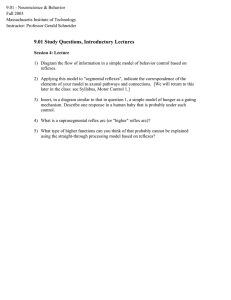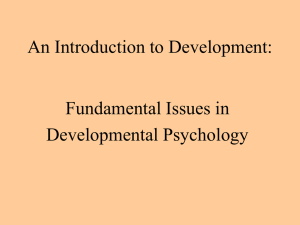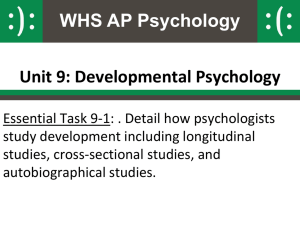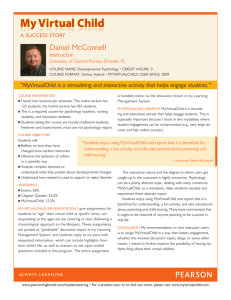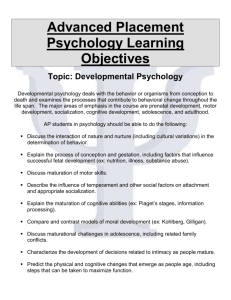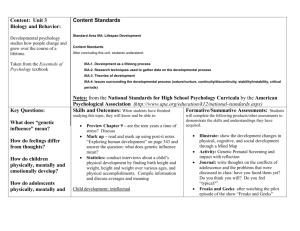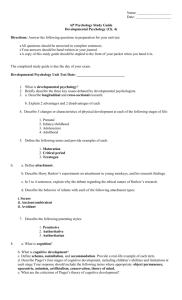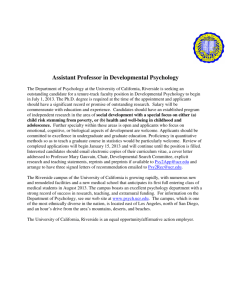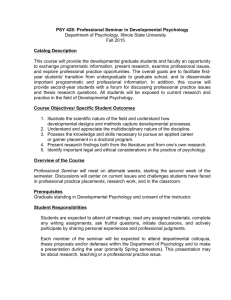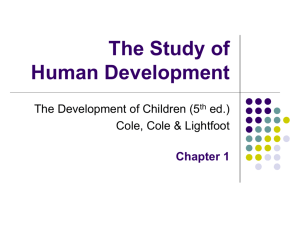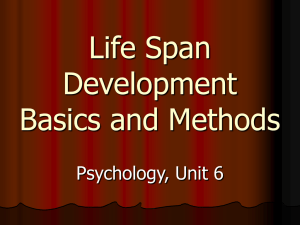Developmental Psychology
advertisement
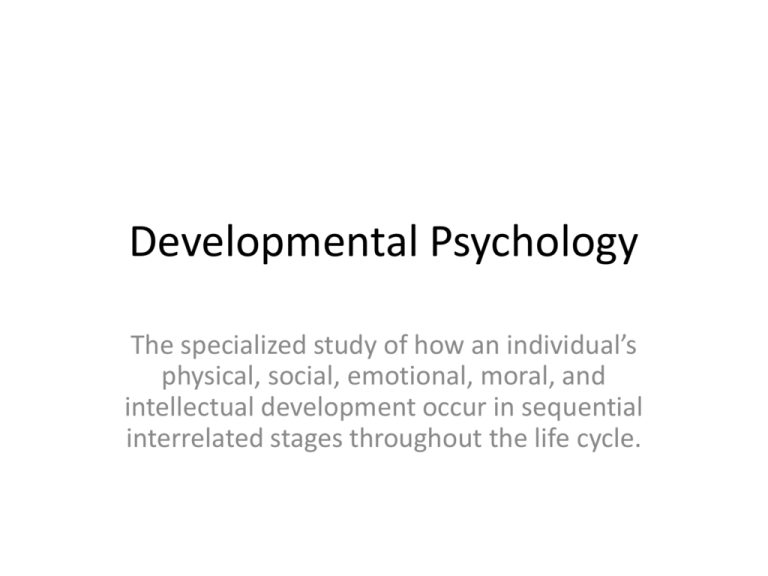
Developmental Psychology The specialized study of how an individual’s physical, social, emotional, moral, and intellectual development occur in sequential interrelated stages throughout the life cycle. “Ring around the rosy, pocket full of posies…” I feel especially happy when I wear my pink pants! Hmmm… I wonder if anyone will see me if I take that extra cookie? I love to run!! It’s more fun with lots of people! Developmental Psychology studies: Continuity versus Stages of Development Developmental Psychology studies: Similarity versus Difference Developmental Psychology studies: Nature versus Nurture Nature deals the hand. Nurture plays the cards. Chapter 3 Developmental Psychology: Infancy and Childhood http://www.medicinenet.com/stages_of_pregnancy_pictures_slideshow/article.htm Ah, a baby… Won’t it be wonderful???? Propped against my knees in the delivery room, my son, minutes old, peered at me with wide, unblinking eyes. He looked so intent. So serious. So thoughtful. What could earth’s freshest arrival possibly be thinking about? Maybe he was wondering who all the giants looming over him might be, especially the pair with the goofy grins who kept counting his fingers and toes over and over. Maybe his head still ached from the incredibly narrow trip out of my womb. Maybe he was asking himself, “Hey, who turned on the lights?” It’s hard to know how the world appears to a new baby. But in recent years, researchers have deduced plenty about what infants sense, remember, prefer, and need. And such knowledge is more than academic for new parents. -from Parent magazine, Paula Spencer, 1999 SO… What can newborns do? In utero: hiccup, suck their thumb, kick, stretch, yawn Newborns can: see, hear, smell, respond to environment, cry, smile, show surprise & fright Reflexes Inherited, automatic, coordinated movements Grasping Reflex Rooting Reflex Babinski Reflex Moro (Startle Reflex) Questions: How long do these reflexes last? What is the purpose of these early reflexes? What can we learn from them? Physical and Motor Development Average birth weight: 7.3 pounds Average birth height 20.2 inches Physical Development: Vision Perceptual Development: Vision What do babies (3-4 months) like to look at? Fantz, 1961 Physical Development: Hearing Physical and Motor Development – Maturation Stages Physical Development: Depth Perception The Visual Cliff Gibson & Walk, 1960
